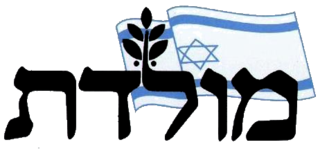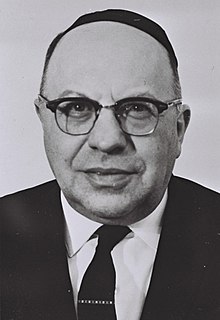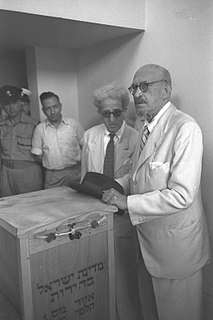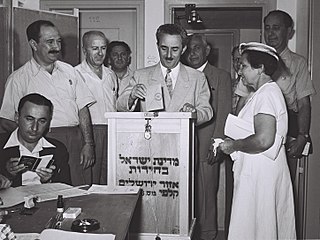External links
- Members of the Third Knesset Knesset website
Members of the Knesset by term | |||
|---|---|---|---|
The 120 members of the third Knesset were elected on 26 July 1955. The breakdown by party was as follows:
| MK | Replaced | Party | Date | Notes |
|---|---|---|---|---|
| Yussuf Hamis | Yitzhak Yitzhaky | Mapam | 21 September 1955 | |
| Tzipora Laskov | Nahum Nir | Ahdut HaAvoda | 12 October 1955 | |
| Ya'akov Nitzani | Ya'akov Shimshon Shapira | Mapai | 14 November 1955 | |
| Jabr Muadi | Seif el-Din el-Zubi | Democratic List for Israeli Arabs | 13 February 1956 | |
| Yizhar Smilansky | Aharon Becker | Mapai | 1 October 1956 | |
| Yisrael Kargman | Zalman Shazar | Mapai | 8 October 1956 | |
| David Bar-Rav-Hai | Senetta Yoseftal | Mapai | 24 October 1956 | |
| Ya'akov Klivnov | Haim Ariav | General Zionists | 16 June 1957 | |
| Hannah Lamdan | Ehud Avriel | Mapai | 31 July 1957 | |
| Yohanan Cohen | Yeshayahu Forder | Progressive Party | 28 October 1957 | |
| Amos Degani | Aharon Remez | Mapai | 19 December 1957 | |
| Moshe Carmel | Yitzhak Tabenkin | Ahdut HaAvoda | 9 June 1958 | |
| Yerahmiel Assa | Avraham Abaas | Ahdut HaAvoda | 17 September 1958 | |
| Haim Zadok | Yosef Sprinzak | Mapai | 28 January 1959 | |
| Shlomo-Ya'akov Gross | Zalman Ben-Ya'akov | Religious Torah Front | 2 March 1959 | |
| Jenia Tversky | Shlomo Hillel | Mapai | 6 July 1959 |

The Israeli system of government is based on parliamentary democracy. The Prime Minister of Israel is the head of government and leader of a multi-party system. Executive power is exercised by the government. Legislative power is vested in the Knesset. The Judiciary is independent of the executive and the legislature. The political system of the State of Israel and its main principles are set out in 11 Basic Laws. Israel does not have a written constitution.

The Knesset is the unicameral legislature of Israel. As the supreme state body, the Knesset is sovereign and thus has complete control of the entirety of the Israeli government.

Moledet was a minor right-wing political party in Israel.

Tehiya, originally known as Banai, then Tehiya-Bnai, was an ultranationalist political party in Israel. The party existed from 1979 until 1992. In the eyes of many, Tehiya was identified with Geula Cohen, who founded the party and headed it throughout its existence.
The Religious Zionist Party, known as Tkuma until 2021 and still officially known as National Union–Tkuma, is a right-wing religious Zionist political party in Israel.
The General Zionists were a centrist Zionist movement and a political party in Israel. The General Zionists supported the leadership of Chaim Weizmann and their views were largely colored by central European culture. Their political arm is one of the ancestors of the modern-day Likud.

The Center Party, originally known as Israel in the Center, was a short-lived political party in Israel. Formed in 1999 by former Defense Minister Yitzhak Mordechai, the aim was to create a group of moderates to challenge Binyamin Netanyahu on the right and opposition leader Ehud Barak's Labor Party on the left.

Shlomo Yosef Burg was a German-born Israeli politician. In 1949, he was elected to the first Knesset, and served in many ministerial positions for the next 40 years. He was one of the founders of the National Religious Party.
Elections for the 17th Knesset were held in Israel on 28 March 2006. The voting resulted in a plurality of seats for the then-new Kadima party, followed by the Labor Party, and a major loss for the Likud party.

Elections for the second Knesset were held in Israel on 30 July 1951. Voter turnout was 75.1%.

Elections for the third Knesset were held in Israel on 26 July 1955. Voter turnout was 82.8%.

Hapoel HaMizrachi was a political party and settlement movement in Israel. It was one of the predecessors of the National Religious Party and the Jewish Home.
Mizrachi was a political party in Israel, and is one of the ancestors of the modern-day Jewish Home Party.
Elections for the fifth Knesset were held in Israel on 15 August 1961. Voter turnout was 81.6%.
Elections for the sixth Knesset were held in Israel on 2 November 1965. Voter turnout was 85.9%.

Legislative elections were held in Israel on 28 October 1969 to elect members of the seventh Knesset. The ruling Alignment coalition was returned to power with the largest number of seats ever won in an Israeli election. This was attributed to the government's popularity following the country's victory in the Six-Day War, and that the Alignment had been formed by an alliance of the four most popular left-wing parties, who between them had received 51.2% of the vote in the previous elections in 1965. As a result, Golda Meir remained Prime Minister. Voter turnout was 81.7%.
Elections for the 12th Knesset were held in Israel on 1 November 1988. Voter turnout was 79.7%.

The twenty-seventh government of Israel was formed by Benjamin Netanyahu of Likud on 18 June 1996. Although his Likud-Gesher-Tzomet alliance won fewer seats that the Labor Party, Netanyahu formed the government after winning the country's first ever direct election for Prime Minister, narrowly defeating incumbent Shimon Peres. This government was the first formed by an Israeli national born in the state after independence in 1948.

Meretz is a left-wing political party in Israel. The party was formed in 1992 by the merger of Ratz, Mapam and Shinui, and was at its peak between 1992 and 1996 when it had 12 seats. It currently has six seats in the Knesset.